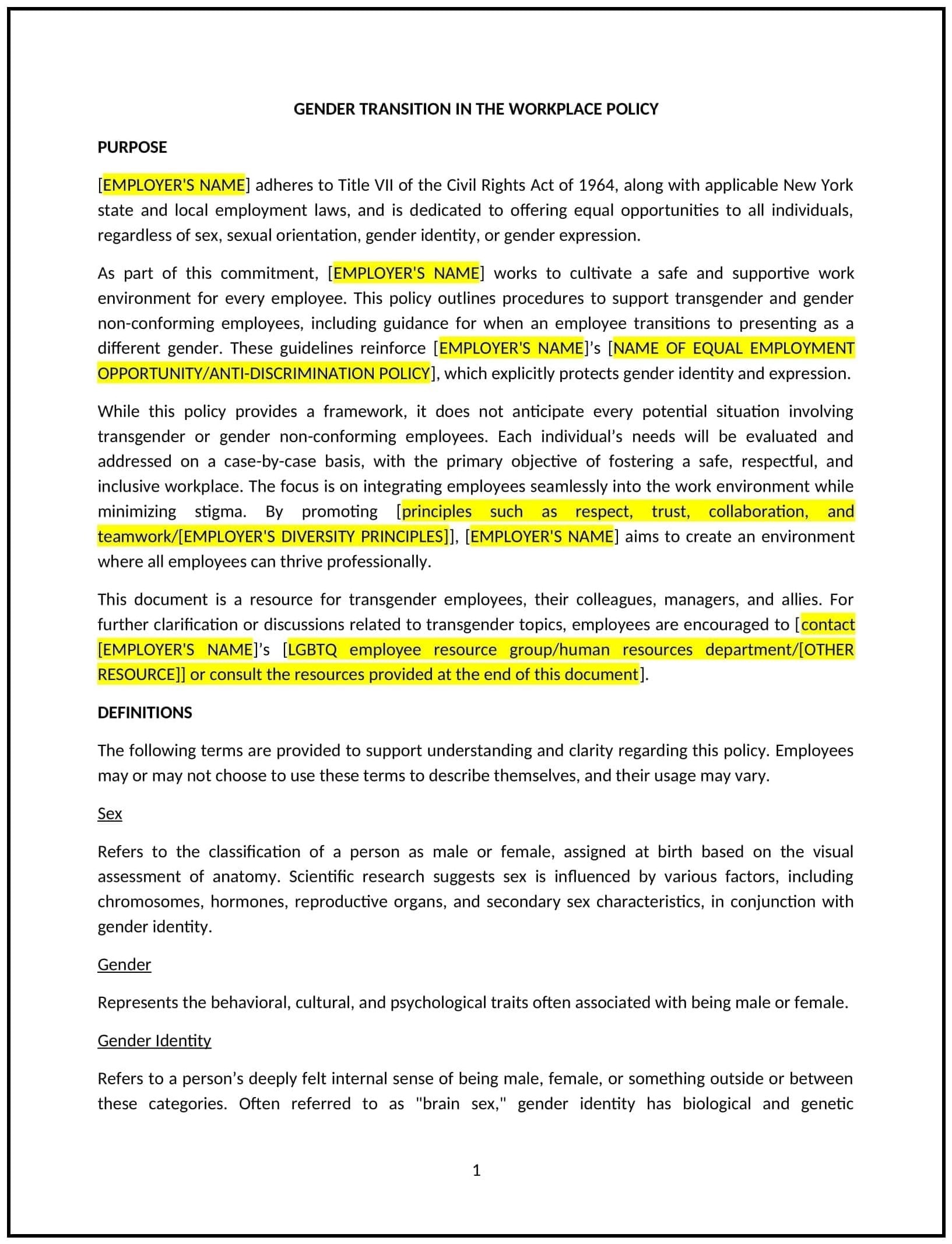Gender transition in the workplace policy (New York): Free template
Got contracts to review? While you're here for policies, let Cobrief make contract review effortless—start your free review now.

Customize this template for free
Gender transition in the workplace policy (New York)
This gender transition in the workplace policy is designed to help New York businesses provide clear guidelines and support for employees undergoing or planning a gender transition. Whether businesses are fostering inclusivity, managing workplace changes, or supporting compliance with New York State Human Rights Law, this template helps ensure all essential considerations are addressed.
By using this template, businesses can promote an inclusive workplace culture, support transitioning employees, and minimize potential misunderstandings or conflicts.
How to use this gender transition in the workplace policy (New York)
- Define the scope: Clearly state that the policy applies to all employees and covers every aspect of the workplace, including hiring, benefits, and day-to-day interactions.
- Provide guidance on communication: Outline steps for discussing a transition plan with the transitioning employee, ensuring privacy and mutual understanding.
- Offer support resources: Include information on internal support options (e.g., HR representatives, employee resource groups) and external resources (e.g., counseling services).
- Address workplace changes: Detail how name, pronoun, and gender marker updates will be handled in company records, email systems, and other platforms.
- Include anti-discrimination protections: Reaffirm the business’s commitment to providing a safe and respectful environment, emphasizing that discrimination or harassment will not be tolerated.
Benefits of using a gender transition in the workplace policy (New York)
This policy offers several benefits for New York businesses:
- Promotes inclusivity: A clear policy fosters a supportive environment where all employees feel respected and valued.
- Reduces workplace conflicts: Proactively addressing transitioning employees' needs minimizes misunderstandings and ensures smooth transitions.
- Enhances compliance: Aligning with New York State Human Rights Law helps businesses avoid legal risks related to discrimination or non-compliance.
- Supports employee well-being: Providing clear guidance and resources helps transitioning employees feel supported and reduces stress during a significant life change.
- Strengthens company culture: A proactive approach to inclusivity enhances the business’s reputation as an equitable and forward-thinking workplace.
Tips for using this gender transition in the workplace policy (New York)
- Engage leadership: Ensure that managers and team leaders are trained on how to support transitioning employees and implement the policy effectively.
- Communicate sensitively: Approach conversations about gender transition with respect and privacy, involving the employee in planning changes.
- Update policies and systems: Regularly review workplace policies and systems to ensure they are inclusive of all gender identities and expressions.
- Provide training: Offer training sessions to educate employees on inclusivity, respect, and the importance of using correct names and pronouns.
- Review regularly: Update the policy to reflect changes in New York labor laws, best practices, and employee feedback to maintain its relevance and effectiveness.